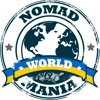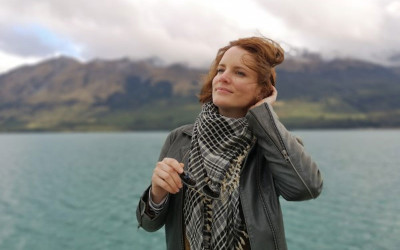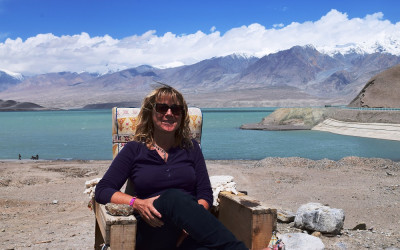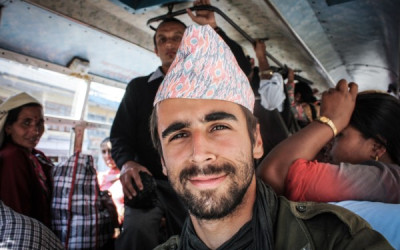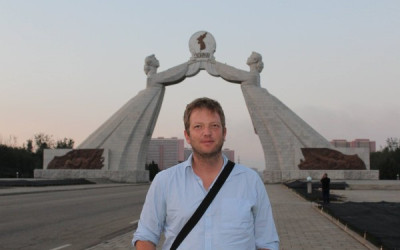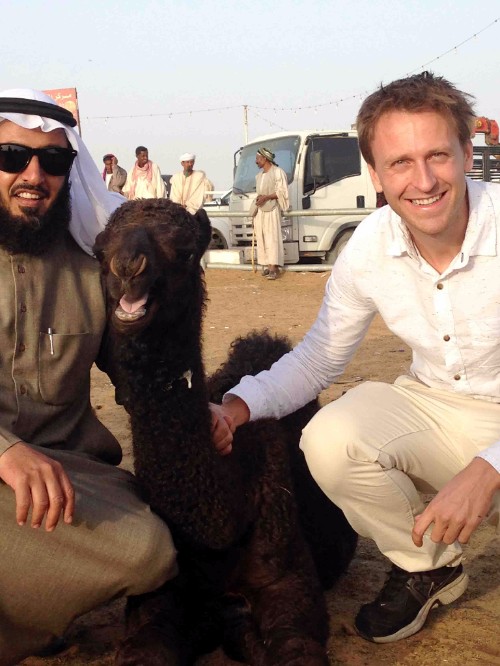
Camel market, Saudi Arabia
Dustin, tell us something about your childhood
I grew up in the small town of Altoona, Wisconsin–north central USA — and lived my whole childhood in the same house and attended the same (Altoona) school system from kindergarten through high school graduation. Growing up, I was always very happy and very busy! I immersed myself in every opportunity: sports, clubs, music, and academics. It feels natural for me to continue to just go, go, go!
I attended a small college (approximately 5000 students), The University of Wisconsin – River Falls. I ran for student body president at the end of my freshman year and lost in a very close questionable election. I decided to escape the drama of the election and take advantage of no commitments for my fall semester. I wanted to study in Europe but the costs were too high. My university had a partnership with a University in Taiwan where I received a scholarship (free tuition, free room and board) in exchange for my teaching English to interested college students. I loved the entire semester– I felt like I was on a cloud, exploring the beautiful island, seeing incredible sites, and making friends with the Taiwanese. I spent the entire semester making local friends most who had never met a foreigner before. I joined the surf and volleyball clubs. On different extended weekends, I flew to Hong Kong, Thailand, and the Philippines during that one semester in Taiwan. I was forever hooked on traveling.
When I graduated from Dental School in Florida, I decided to move to Singapore to experience dentistry in a different culture and to have a personal year-long adventure. However, my one year plan turned into four years as I truly enjoyed my life in the beautiful country of Singapore. I appreciated the flexibility of my work schedule: I work extensive hours (often 12 hour days) for consecutive days in order to accumulate days off to travel.
You recently visited your last UN country, Israel. How does it feel?
It feels amazing! I was never certain I’d be able to visit every country. It took over 9 months for me to get a visa to Syria. Just a month before I arrived in Syria, I had visited Israel, but I was denied entry to Israel due to having Arabic stamps in my passport and friendships posted online. Israel “banned” me from visiting for 10 years, so I doubted I’d ever get to that final country. I just felt like I had to pursue it. I was not a threat in any way. I hired an Israeli lawyer; my case made it all the way to their Supreme court. They ruled that I could come back to Israel and be interviewed by security who would decide if I could enter the county. I invited my mother to join me for my last trip and we entered my last country on Mother’s Day, May 14th, 2017.
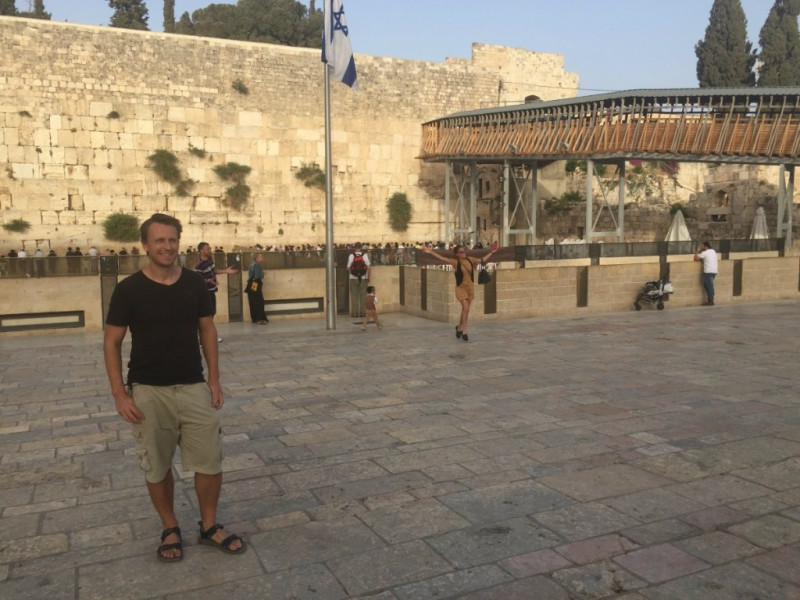
Wailing Wall, Israel
You call yourself the Wandering Dentist. Has your profession played a part in your travels in any way?
Though my travel is not work-related and it is not employer assigned, my work schedule allowed me to travel extensively. I work several long days in a row to build up time off to travel. I’ve done all of my traveling while working a full time job as a dental surgeon in Singapore. I often work 12-hour days (including evenings, weekends, and public holidays) for weeks of consecutive days in order to accumulate several days or weeks of vacation time. I even used short weekends to travel to nearby countries or destinations. If I had only two days off I would take a trip to Indonesia, Malaysia, another nearby country with a cheap direct flight to Singapore.
I did use my dental and medical skills to help numerous people throughout the last four years while traveling.
For example, when visiting Socotra, I was told about three young siblings who were losing their teeth at an alarming rate. I was able to diagnose that they had the very rare genetic medical condition – Papillion Levfre Syndrom. Collaborating with a top Oral Pathologists, we wrote and submitted an article–which is now pending submission to the Pediatric International Journal– to raise concern and support for continued research in order to cure this rare condition.
In Syria, I presented as a featured speaker at their 16th International Scientific Conference. It was great to see this country continuing to improve the health care despite the ongoing crisis that exists. Making presentations can help hundreds of patients. It feels good because by teaching other dentists new ways to help people, their efforts become more efficient and beneficial for all of their patients. I truly enjoy interacting with other dentists,, answering questions, and giving demonstrations. I, too, have learned from others.
When I planned my trip to Pitcairn, local leaders found out I was a dentist and asked if I would be able to treat the local residents. As one Pitcairn native put it “You are the most popular tourist we have ever had visit” – likely due to the fact that I treated nearly half the population (including the mayor of Pitcairn) while I was visiting the island.
These are just a few of the examples of times I was able to provide dental work when I was traveling; however, I have taken advantage of countless opportunities to help others. Though my goal while traveling was to see, experience, and learn about the country, I also tried to help where I saw a need–and everywhere in the world there is need.
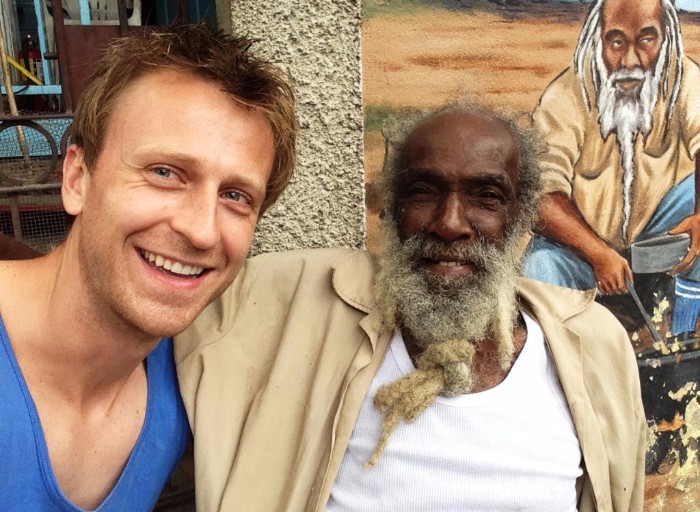
Meeting Georgie from Bob Marley’s song
Tell us a few travel stories which are really memorable for you.
I have had many many amazing experiences. I usually ask a person to pick a country and I’ll tell them a story from that place. On my website www.wanderingdentist.com, I have many detailed examples of amazing experiences and unique and generous people I met, accompanied by pictures.
While on Pitcairn Island, I collected honey while experiencing being a beekeeper for a day. I enjoyed renting a car and taking a road trip all the way around India. Many locals informed me they had never seen a foreigner driving themselves around India. I rented a car in Africa that broke down four times and had to use my shoelaces to tie the car back together. I swam with Whale Sharks in the Philippines and rode elephants in Thailand. I attended weddings in China, Eritrea, China, Russia, and Chad. I was treated like a celebrity in Baghdad, Iraq, & Damascus, Syria since the locals said they hadn’t seen a foreigner in years or perhaps ever before.
The greatest experience has been becoming friends with people from every country. No matter how different a culture may seem, people everywhere seem to enjoy similar activities and experiences. They value their children and want a better life for them. People all over the world are generous and friendly. They laugh and smile and show they enjoy life; they want the best for our world.
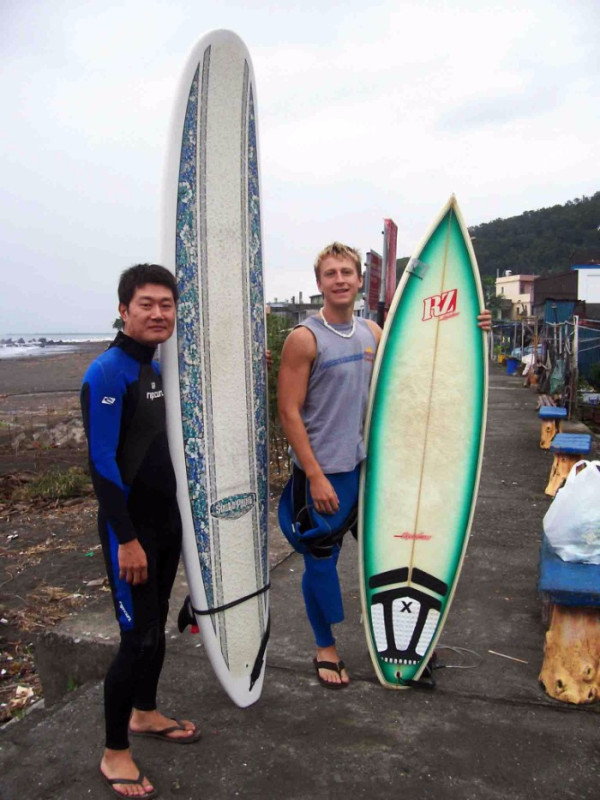
Surfing in Taiwan
Which countries really surprised you, positively or negatively?
When I travelled, I just wanted to be treated like the person I am: a young traveler, interested in learning about the world. I wanted locals to know I was coming to their country to see and experience it – not to check it off a list. That’s why I did all my traveling without much information – no twitter account and no blog — I did not want to be distracted by taking notes. I truly wanted to experience the moment. I did not take money from a sponsor because I wanted to be honest about my experience and observe how a “typical” traveler would be treated. \
Some pleasant surprises:
I was invited to Syria to speak at a conference. The Opera house where I presented was a huge beautiful building that seated over 3,000 people. Everyone was extremely warm, friendly, and inviting; most said they hadn’t met a “tourist” in years. A nice surprise: when I wandered the streets of Syria, my experience was peaceful and locals were “out and about” and pleasantly greeted me.
I attended a dental conference in Saudi Arabia. A nice surprise: there were more female than male dentists at the conference. I talked to several of the female dentists who said they feel empowered and free to do professional work in their country.
A sad surprise: When visiting Laos, I learned it was the most bombed country in the world. I will never forget visiting Tham Piu Cave where 374 innocent Laotian farmers, who had no weapons, hid from American bombers who killed all of them for “target practice”.
A disappointing surprise: Getting denied from Israel was a surprise because their immigration policy states that they allow people to visit their country even if they have visited Arabic countries, but that certainly wasn’t the case for me. Even after bringing my dental license and explaining that I do international charity work, they still weren’t convinced. They saw the 100 countries that I had entered and yet their only focus was on 4 Arabic countries I visited. They did no background check and contacted no one.
A fun surprise: I learned that China has some pretty “unique” cultural differences. I was surprised that toddlers often wore “split pants” instead of diapers. They are made with an open seam over the crotch and/or buttocks. I also found it surprising that many Chinese women wore high heels when mountain climbing. I saw adult men lifting their shirts to show their bellies at a public restaurant when eating spicy food!
I was surprised at the “typical” homes and public buildings in Pitcairn. Houses were similar to where I grew up. I just assumed homes would be simpler, since it would be challenging to get construction crews to the middle of the Pacific Island. Pitcairn had a nice two-room school and a four- room hospital, which was pretty big considering the population is only 50 people. I was even more surprised to find out they had internet all through Pitcairn. I liked how everyone supported each other. There was a end-of-the-year school performance for the five kids from just two of the families but nearly every resident showed up to watch–heartwarming!
When I visited Antarctica, I was most surprised by the stories. A girl who had lived there for two years explained how there was TV but it played only 3 channels and one was in Russian (so only two channels she could understand) and there were two radio stations. There had 4 births in Antarctica and one marriage.
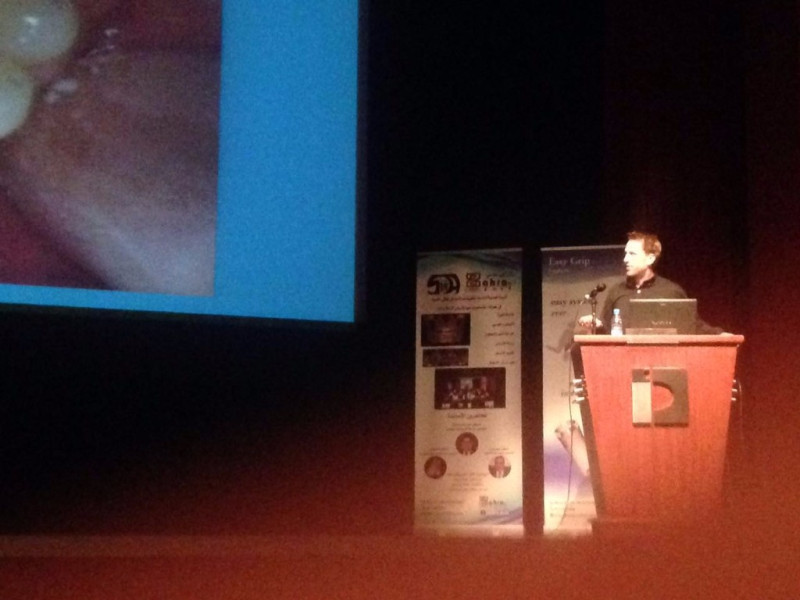
18th International Scientific Conference, Syria
So, where is home for you? Do you have a place you call home or are you an eternal nomad? How do your friends and family view all your travels?
Wisconsin, in North Central USA is my childhood home, and where my parents and extended family live. Then I lived in Florida for four years of dental school.
For the last four years, I have called Singapore “home”. I have done all of my traveling while working a full time job as a dental surgeon in Singapore. I often work 12-hour days for weeks of consecutive days in order to accumulate several weeks of vacation time.
My former teachers often share my travels with their students. My school district and universities have featured me on their Facebook home pages.
How do you feel travel has changed you compared to, say, the Dustin of 10 years ago?
Traveling has made me become more open-minded and compassionate for others. I have met kind, bright, successful people of all backgrounds, religions, and races. It’s amazing that we have so much in common. One of the clearest traits is people all over the world love their children and want them to have happy lives. I have seen so much poverty, but I have also seen much happiness and goodness.
Hopefully, travel has also made me a bit smarter, too. I wish I could take my high school geography and history classes over again — I think the tests would seem a lot easier now! I hope to inspire more people to travel and experience the world first hand like I have.
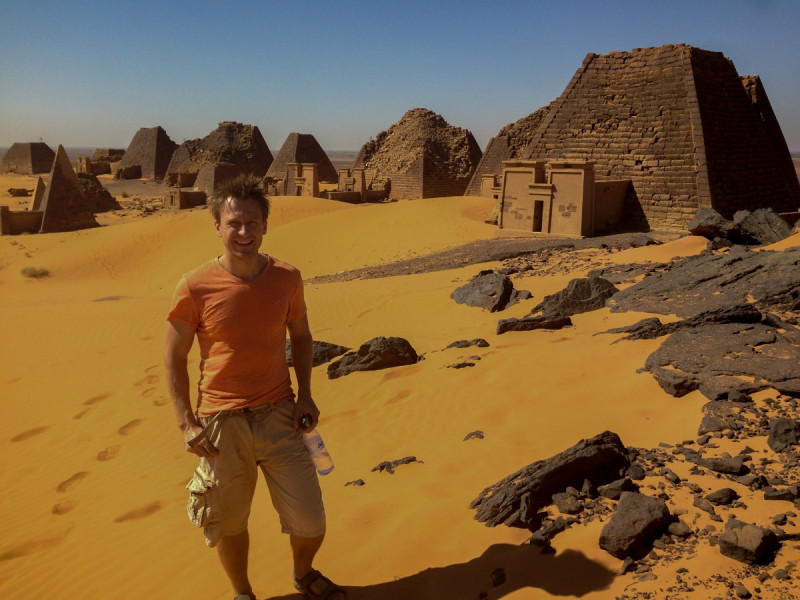
Nubian Pyramids, Sudan
You mainly travelled alone. How do you feel about that?
Travel solo! Many people are afraid to travel solo, but it isn’t as scary as you might imagine. Locals are often ready and eager to show off their city. When you’re alone, locals are more likely to approach you. When folks learn you are alone and open to learning about their culture, they may invite you to their homes, gatherings, and celebrations. I accompanied locals to their weddings, graduations, and family reunions. They’ve taken me to experience the local nightlife and to eat at their favorite restaurants–which I never would have discovered on my own. I often stayed overnight at the homes of locals. They would offer whatever they had–a couch, a mat on the floor–or they often insisted I take the best bed in the house.
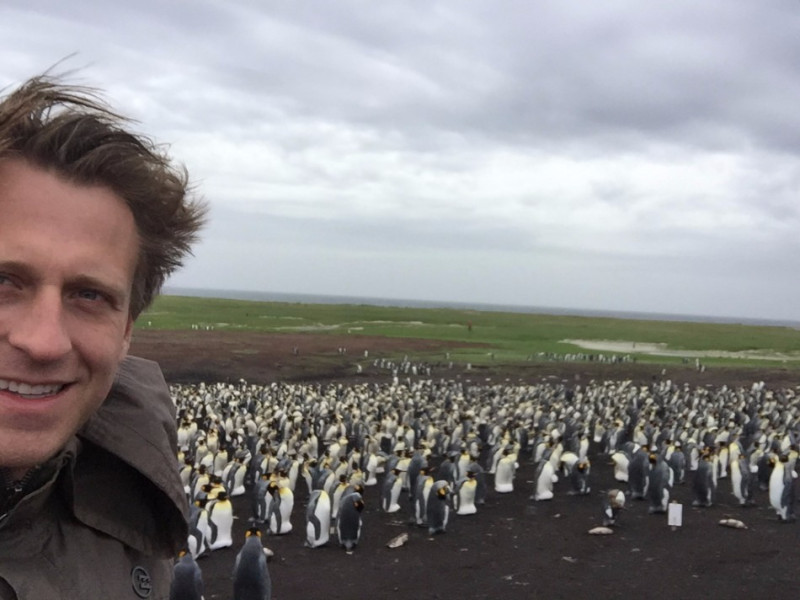
Volunteer Point, Falklands
Finally, a question we always ask – if you could invite four people from any time in human history to an imaginary dinner, who would you invite and why?
Mother Teresa — I visited her missionary in Calcutta: her life work and lasting words are inspirational.
Nelson Mandela — I visited his jail cell; he spent his life fighting for equality.
Malala Yousafzai — strong and well spoken, she is a fierce advocate for educating girls.
Former American President Jimmy Carter — at 92 years old, he continues to help others. He has built homes for humanity, worked for world peace, and fought diseases in poor countries.
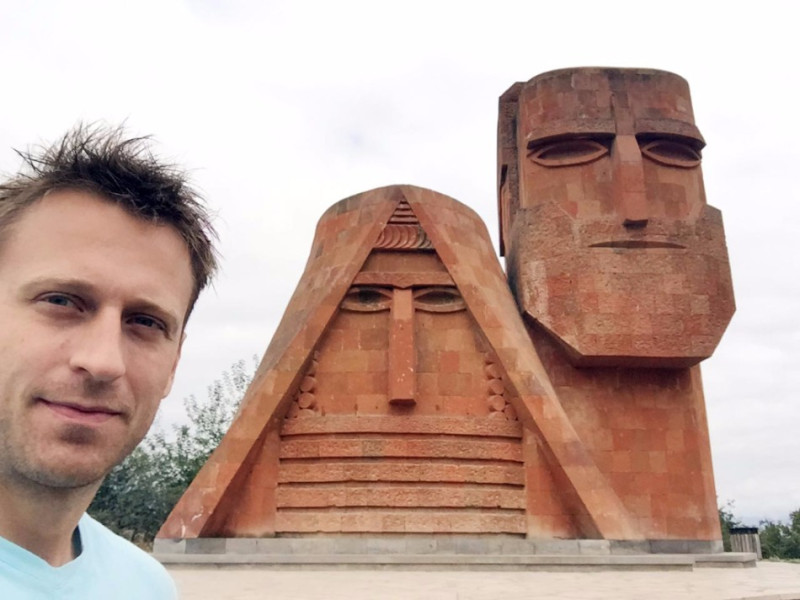
Nagorno-Karabakh
The photos in this interview are from Dustin’s personal collection and we thank him for sharing them with us.
